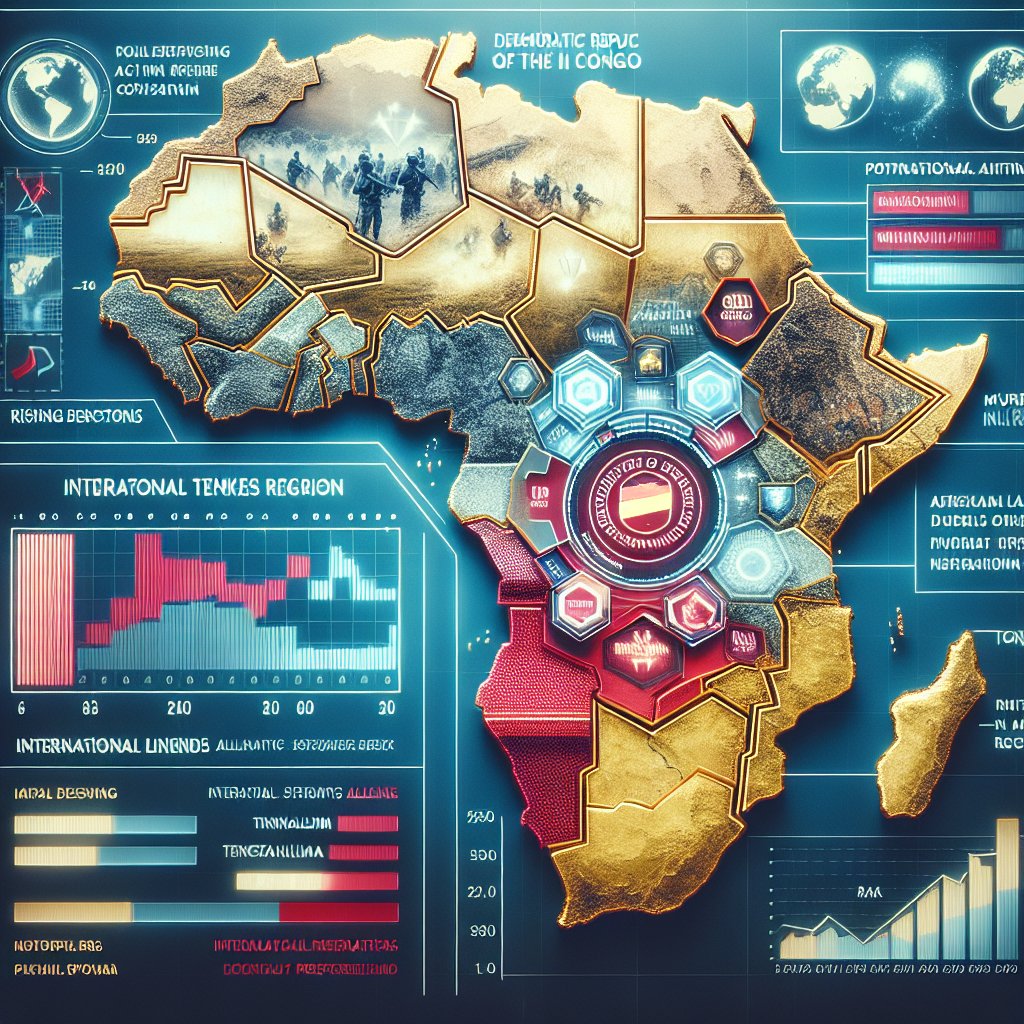Image created by AI
Tensions Rise as DRC President Demands Rwanda Face Sanctions Comparable to Russia's
The geopolitical landscape in Africa's Great Lakes region is witnessing escalating tensions as the Democratic Republic of the Congo (DRC) President Felix Tshisekedi call for international sanctions against neighboring Rwanda. In a bold and highly publicized press conference, President Tshisekedi presented a case for Rwanda to face punitive measures akin to those imposed on Russia following its invasion of Ukraine.
Tensions have been mounting due to continuous unrest in the North Kivu province, where the DRC accuses Rwanda of backing the notorious M23 rebels. President Tshisekedi harshly criticized Rwanda's alleged aggression and accused it of the illegal exploitation of the DRC's mineral wealth, which significantly consists of gold, tin, tantalum, and tungsten. These resources have a critical role in the global tech industry, underlining the gravity of the situation.
Adding complexity to the issue, Tshisekedi highlighted his disappointment regarding the recent Memorandum of Understanding signed between Rwanda and the European Union. This agreement focuses on fostering sustainable raw material value chains, with the EU notably assisting Rwanda in tantalum extraction, increasing Rwanda's stake in a market integral to electronics manufacturing.
Rwanda's economy, heavily reliant on tourism and mining, reportedly experienced a sharp increase in mineral export revenue in 2023—a point of contention given the DRC's claims of smuggling activities in its territories. Reports from Rwanda show an increase in mineral export revenue to over R20.9 billion, up from R14.6 billion in 2022.
A statement from President Tshisekedi leaves little to the imagination concerning the DRC's stance on the matter. He emphasized the need for a respectful peace, not one marred by humiliation, and signaled the country's readiness to engage in military conflict if necessary. With billions invested in the DRC's military capabilities, including the strategic alignment with the Southern African Development Community's army (SAMIDRC), the DRC is signaling its preparedness for potential conflict.
Regional military dynamics have shifted with the DRC's decision last December to replace the East African Community's standby force with the SAMIDRC, thereby integrating the forces of Malawi, Tanzania, and the South African National Defence Force. Concurrently, the United Nations Organisation Stabilisation Mission in the DRC (MONUSCO) is in a gradual phase of withdrawal.
Tensions have also escalated following accusations by M23 rebels against MONUSCO, claiming the UN mission is violating international law by taking sides and engaging in military activities alongside the Congolese national army (FARDC) and SAMIDRC. Recent incidents, including the landing of two rockets near a UN peacekeeping base in Kimoka, further underscore the severe security challenges in the region.
As MONUSCO reaffirms its neutrality and calls for a cessation of hostilities, the DRC persists in its demand for a concrete international response to what it perceives as Rwandan transgressions. President Tshisekedi’s comparison of Rwanda's alleged actions to Russia's involvement in Ukraine serves as a potent call for the international community to treat the conflict with comparable gravitas. This cry for justice resounds through a continent already wracked with conflicts, awaiting substantive and decisive responses from global powers.










